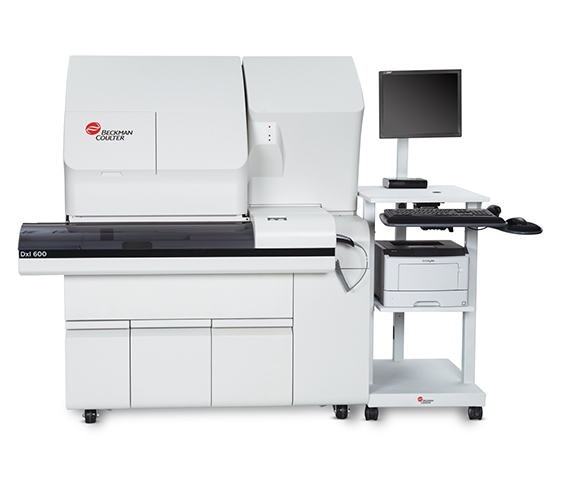Beckman Coulter, a global leader in diagnostics and infertility testing, announced today the launch of the first and only test that uses a validated cut-off to aid in the assessment of ovarian response. This new assay helps clinicians predict poor ovarian response in those who plan to undergo controlled ovarian stimulation as part of an in vitro fertilization (IVF) protocol. The AMH Advanced assay is available in European countries that accept the CE marking.

Image Credit: Beckman Coulter
An ongoing challenge for clinicians is the lack of a gold standard to assess ovarian reserve and ovarian response. There is no universally accepted clinical cut-off to define a normal versus an abnormal result for any available measure of ovarian reserve. Validated AMH cut-offs for ovarian reserve and ovarian response provide clinicians with the information they need to develop a personalized protocol to individualize treatment for controlled ovarian stimulation and improve the benefits and risks for the patient.
With the new Access AMH Advanced assay, clinicians now have a tool to predict poor ovarian response so they can establish individualized treatment for ovarian stimulation in women undergoing an assisted reproductive technology programme.”
Kathleen Orland, Senior vice president & general manager of clinical chemistry immunoassay, Beckman Coulter Diagnostics
According to the World Health Organization (WHO), infertility affects millions of people of reproductive age worldwide, adversely impacting families and communities. Estimates suggest that 48 million couples and 186 million individuals live with infertility globally. AMH is a widely accepted biomarker used to evaluate several clinical conditions, including infertility treatment, menopause evaluation, ovarian dysfunction (such as polycystic ovary syndrome), gonadotoxic cancer treatment and ovarian surgery.
AMH testing has become increasingly important in monitoring female reproductive health to help provide personalized guidance, predict ovarian response to IVF treatment, and avoid ovarian hyperstimulation. The Advanced AMH assay provides accurate and validated assay-specific cut-offs to guide clinical use. The assay also aids in establishing the individual daily dose of the human recombinant follicle-stimulating hormone rFSH (follitropin delta) marked by Ferring Pharmaceuticals in controlled ovarian stimulation for the development of multiple follicles in women undergoing in vitro fertilization.
“Beckman Coulter is the leading innovator in AMH testing, having pioneered the test over 20 years ago. Clinicians have continued to appreciate the utility of the test since, unlike other biomarkers, AMH has minimal variability throughout the menstrual cycle,” said Heather Read-Harper, senior marketing manager for immunoassay and clinical chemistry at Beckman Coulter Diagnostics.
We continue on our innovator’s journey by delivering the only AMH assay on the market that provides its own validated cut-offs for ovarian response, while also assessing ovarian reserve.”
Heather Read-Harper, Senior marketing manager for immunoassay and clinical chemistry, Beckman Coulter Diagnostics